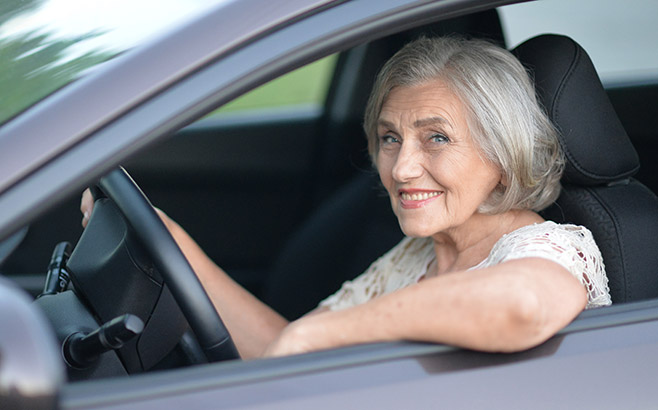
Top Tips for Older Drivers on Insurance and Licensing
 I’ve recently considered updating my elderly mother’s car insurance as she is driving a lot less these days and only in our local area, which my children think is safest for all road users!
I’ve recently considered updating my elderly mother’s car insurance as she is driving a lot less these days and only in our local area, which my children think is safest for all road users!
We began to have concerns about mum’s driving around 2 years ago. We often rely on Grandma to pick up the kids while we’re at work and the feedback from them was starting to indicate some issues….my daughter sheet white skin colour and frayed nerves were the first indicator. I went for a drive with mum to see what was going on and noticed she was clearly getting distracted.
Ageing brings physical and mental change. These changes can, and do, have an effect on driving skills but getting older does not automatically make you a poor driver.
Consider the following:
- Turning your head to see behind you can be difficult if you have stiff joints.
- As your muscles lose strength, turning the steering wheel can get harder.
- In mum’s case, even getting into and out of the car can be tough.
While older drivers can frustrate other road users with their slow driving they are generally safe. According to statistics from the Transport Accident Commission in Victoria drivers aged 75 years or over have a higher risk (per distance travelled) of losing their lives in a crash than any other age group but they have fewer accidents than younger drivers according to the National Road Safety Strategy website.
In most states, drivers are required to have an annual medical examination to continue to hold a licence from the age of 75.
As you approach your 85th birthday, and every two years thereafter, you must decide whether you would like to keep your unrestricted driver's licence, or to switch to a modified licence.
What is a 'modified' licence? Through negotiations with the relevant authority in your state the conditions of your licence could be modified. For example a 'home to town' condition could be put in place. Having a modified license isn’t as bad as it sounds.
Mum’s insurer offers older drivers “refresher” courses and “assessments“. Some insurance companies offer discounts for older driver or for drivers who drive less (see below). In the US, insurers also offer additional savings if you utilized a smartphone app that monitored your driving habits as well as your kilometres.
Like buying a car, there is no single best solution when it comes to buying insurance.
Here are my tips for understanding licensing laws and accessing special insurance discounts for older drivers.
1. Shop Around
Prices differ from company to company, so it pays to shop around. Get at least three price quotes. You can call companies directly or research the information online via comparison websites Before you purchase insurance it’s important to know what you are covered for, by reading the Product Disclosure Statement.
2. Higher Deductibles Could Mean Lower Premiums
Excess is the amount you pay before your insurance policy kicks in. By choosing a higher excess, you can significantly lower your costs.
3. Reduce Coverage on Older Cars
It pays to review your coverage as your car ages. For example, my teenage son owns an old bomb more than 20 years old so we’re only using Third Party Insurance for him otherwise the premium would cost more than the car is worth!
4. Ask about discounts for older drivers
Some insurers, such as the FiftyUp Club’s current special offer provider Budget Direct, will reduce your premium if you restrict the age of drivers, so ask them about this. Restricted Driver Discounts provide a lower premium if you restrict the age of the car’s youngest driver to 21, 25, 30, 40 or even 50.
5. Ask about Low-Kilometre Discounts
Some companies offer discounts to motorists who drive less than the average number of kilometres. Ask!
CLICK HERE TO SEE THE CURRENT SPECIAL OFFER FOR FIFTYUP CLUB MEMBERS ON CAR INSURANCE
Any advice provided in this article is general in nature and does not take account of your individual circumstances, objectives or needs.Always read the Product Disclosure Statement (PDS) before making any decision about buying insurance.

